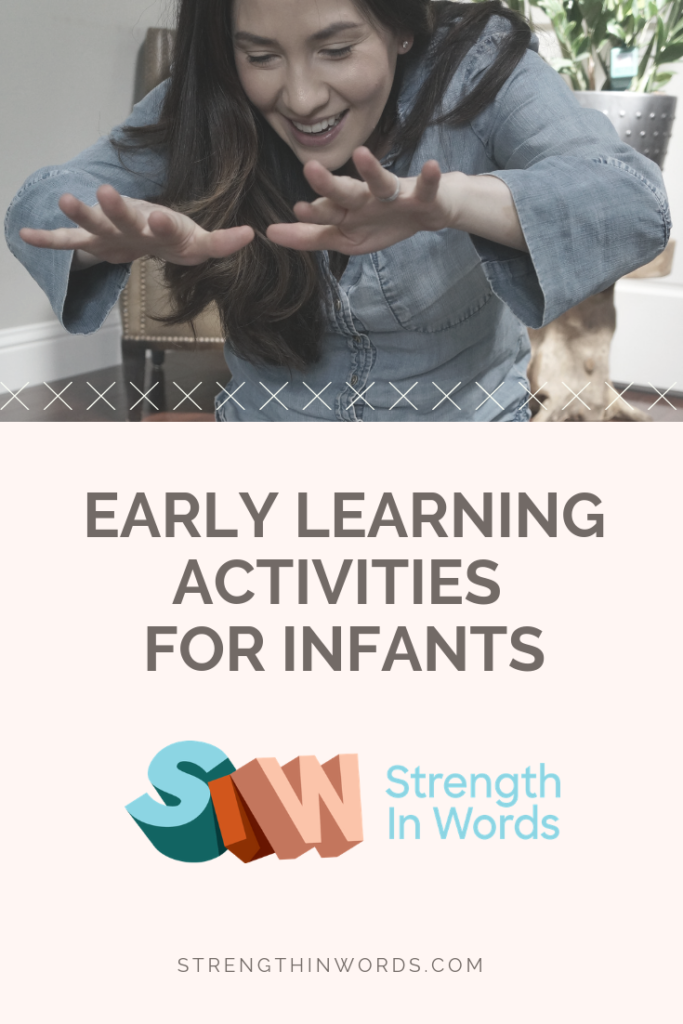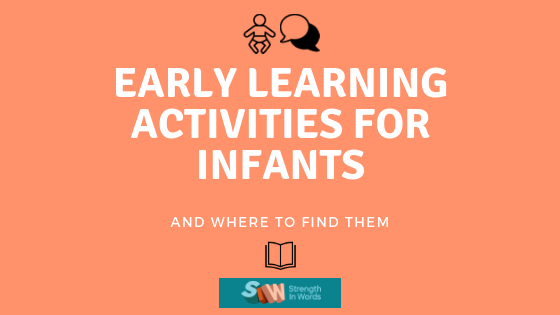Simple resources that help you understand your baby

The reality is that the first year with a baby can be totally overwhelming. We face new challenges, and come to terms with new parts of our identities – sides of ourselves that, often, we’ve never seen!
For many of us, the simple fact that we’re having trouble figuring out where to start when it comes to playing with a baby can be paralyzing. There are plenty of resources out there for new parents about how to take care of your baby (how to change a diaper, feed, or put your baby to sleep), but it’s so hard to know how best to help your baby thrive and develop into an awesome human being… and it’s SO easy to get overwhelmed with all that’s out there.
But when you recognize the tools you already have to boost your baby’s development, you’re able to maximize the time you have with your baby, you’re empowered to “get it right,” and you’re able to unlock the power of everyday routines and objects to figure out how to play with your baby.
I want to break it down.
1. We ask ourselves, “what do I need to buy for my baby to support her development?”
Here’s what Trey, a new parent, has to offer about how our resources have transformed his perspective:
I learned how to take ordinary household objects and simple routines, and transform them into ways to connect with my baby, stimulating her mentally, emotionally, and physically.
Overall, it’s changed my perspective from “what do I need to get for my baby to aid in her development?” to “how can I bond with my baby using real-life objects, music, and personal interaction as she develops?
2. We try to cope with the constant challenges of having too little time and energy.
Here’s how Kyndra, a mother of two young children, describes her situation:
As a parent of a toddler and a 3-month old, I have a lot on my plate and often struggle to find meaningful ways to engage with my baby in the midst of the chaos that comes along with parenting two young children. Whether you’re home with your baby all day everyday or a working parent, this information is easily accessible and meaningful.
I’ve already learned so much, and my relationship with my infant has been thoroughly enriched because of it. I’ll be returning to work in the coming weeks, and I feel gratified knowing that I will be able to continue developing my relationship with my baby in a meaningful way despite having less time at home during the day.
3. We recognize that even if we could download all kinds of information about child development directly to our brains, we still need concrete ideas for actually applying that information.
Here’s what Emily, a pediatric speech-language pathologist, values about the resources she shares with families:
As a pediatric speech-language pathologist, I work with parents of young children. I have already recommended the book Understanding Your Baby to some of my friends with little ones and now I have added it to my client recommendation list. I love the layout and setup of these resources.
They’re easy to follow along with and have actionable recommendations – a must for busy (and potentially overwhelmed) new parents. I found myself bookmarking pages to go back to and reference for many of the recommendations, especially the ones related to play as babies get older.
Infant Resources From Learn With Less
In my book, “Understanding Your Baby,” I give you one small bite-sized piece at a time, breaking down the first year of life, week-by-week. But I know that turning to a book isn’t always the first place new parents go. I know that, for some, a book can feel in and of itself overwhelming, even when its contents are specifically written for sleep-deprived parents and caregivers.
That’s why I’ve created my Recipes For Play: Birth to 12 Months. Each activity is presented concisely on 1-page, and is simple enough that a sleep-deprived, overwhelmed new parent knows exactly what to do (and has the guidance to know that he or she is doing something great for the new babe).
The activities are also well-developed enough that a seasoned parent, or a professional working with families, will still be able to pick up on the nuances of the activity and deepen their interactions with their baby to encourage and support development.
Professionals working with families with infants can easily share information and ideas with families, to help expand upon a concept, and to provide “carryover activities” for families to do to reinforce play and developmental intervention during the time you’re not there!
Now, you can access this infant development “curriculum” for parents in whatever form you want.
